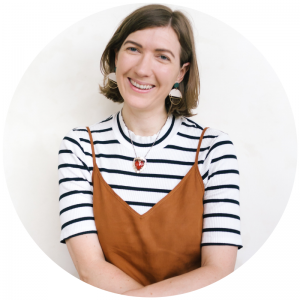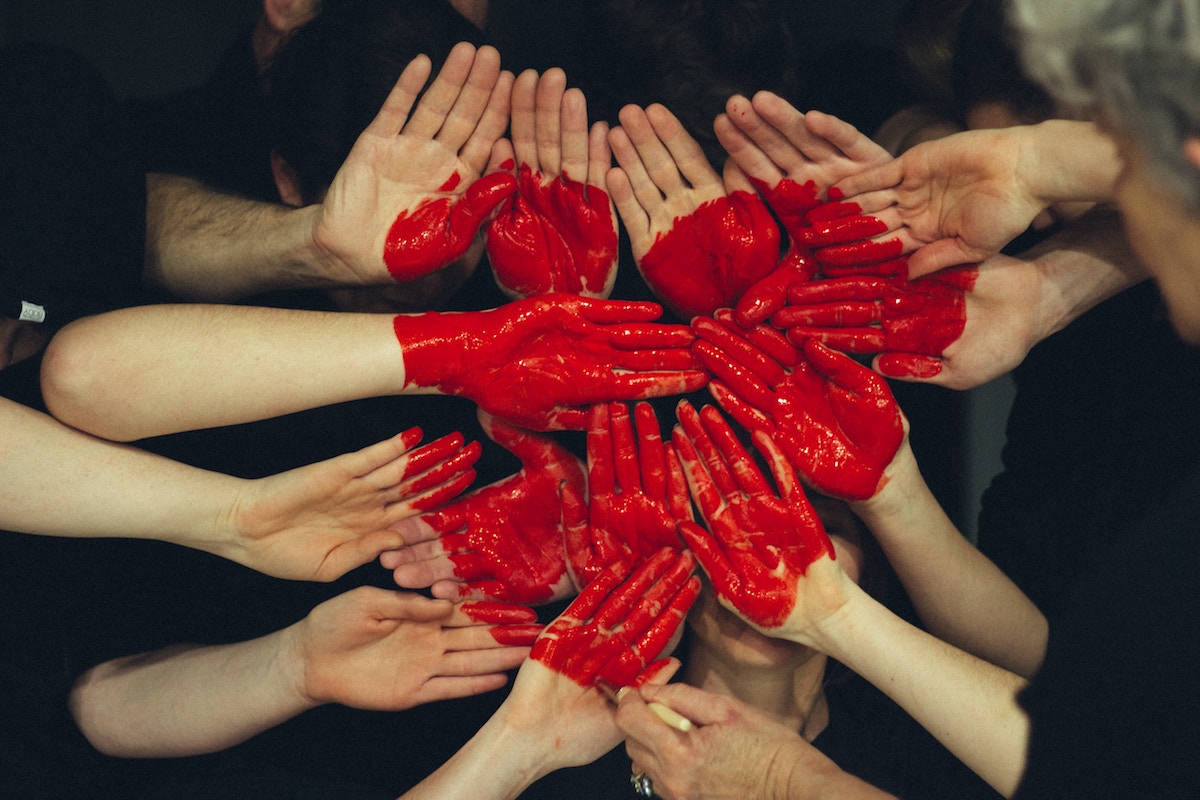This is a short story titled ‘The Diminishment of Endometriosis is a Structural Problem’ that represents the views of author, Carolyn Butler.
A few years back I experienced the most earth shattering pain I’ve ever felt. I woke up in the middle of the night screaming and writhing on day one of my period just 60 minutes after I had taken preventative painkillers. The pain subsided quite suddenly and I fell back asleep.
Two weeks later the pain recurred! I couldn’t understand it as I’d never had pain at any other time than at the onset of my bleed. No one was home and I literally crawled upstairs and put myself in the shower. Curled up on the floor letting the hot hot water hit me.
Shortly after I was diagnosed as having a dermoid cyst on my right ovary. The pain I experienced was a result of torsion of the cyst – a rare phenomenon where the cyst twists on itself (and subsequently untwists). With the size of the cyst (9cmx9cmx6cm) it was clear that it had been around for a while asymptomatically. This all made sense to me. Cyst, twist, pain. Clear.
While I waited for my laparoscopy I dissociated from my body. The size of the cyst weighed on me and I couldn’t understand why I couldn’t see or feel it. When I lay down I became aware of its presence within my body and felt such extreme melancholy. This gave way to feelings of guilt when I considered friends and ALL people who have had malignancies in their body, when this was just benign. Just.
Along the way to my laparoscopy to remove it a couple of gynaecologists mentioned the ‘E’ word. Due to the fact that I routinely experienced pain with my period, they wanted to have permission to remove any endo they might find. I thought this was all ridiculous! I had pain, but I had “normal” pain. Run of the mill period pain, not ENDO pain. I humoured them, but thought they were being ridiculous.
Post-laparoscopy I was met with an endo diagnosis. I was REELING for a few days after this announcement. But why was my response At this time not only was I a student of Chinese medicine, but one with a keen interest in endometriosis. I knew that there were 4 stages of endo and that symptoms experienced were not necessarily matched with pain levels. I knew that some of the lifestyle choices I enjoyed could cause Phlegm accumulation and Blood Stasis, the Chinese medicine diagnoses often found in patients with endo. I knew that most months since my teen years I had experienced pain. Despite my rational brain’s ability to draw conclusions between my lifestyle, symptoms and diagnosis, I continued to believe I couldn’t possibly have endo.
And there’s the rub: why was I diminishing what I was feeling and calling it normal?
Women diminish symptoms associated with their reproductive organs, because there is a socially inflicted taboo on menstruation. Our sexuality is highlighted by the media and people far and wide, but the importance of our reproductive organs on the daily functioning of our bodies is neglected.
Women diminish symptoms because we are told from the onset of our menstrual lives that pain is normal. That clots are normal. Breast distension is normal. Changes in temperament are mood swings and ‘women are crazy when they’re on their period’.
These symptoms are COMMON, they are not normal.
What I’m describing here is an issue of education, whether formalized in a school situation or at home with parents or guardians. I feel certain that most reading this will recall the onset of pain in their teenage years and having a parent or teacher kindly explain that unfortunately that is just what happens.
The taboo on all things menstrual has left a disconnect between mind and the reproductive zone. When our menstrual cycles are oppressed, it is inevitable that under-reporting of severe symptoms will occur and when a diagnosis takes seven to eight years to achieve, suddenly the sufferer has a CHRONIC condition.
Moving Forward
I feel confident in saying that endometriosis has hit the spotlight in the last couple of years, from being relatively unknown. Endo warriors are sharing their stories and a beautiful community is being built.
After my own diagnosis and the removal of endometriosis I theorized it as a lucky reset. This was an important thing for me to do for my own healing, and to consider what this meant for me and what my health required into the future.
It is important to note that this will not be possible for everyone. Many endo patients will find that their symptoms remain the same after the surgery or even get worse.
We have reached the first goal of public awareness due to the hard work and bravery of many people. Now health researchers and policy makers need to mobilise to give the public a solution. While individual success stories are wonderful, the challenge is to provide the research to make this feasible for more people in Australia (and globally).
My concern is that if we do not continue with this incredible momentum that has been built, that we might stagnate in a place of pain and anecdote-swapping. Sharing is IMPORTANT, but without solutions, it has the potential to fester.
I genuinely believe that the buck can stop with us with our new-found understanding of endometriosis. Yes, solutions must be found for adult warriors, but we can also look to prevent the epidemic continuing into the future.
Here some ways we can reach progress:
- Looking for solutions for teenagers who have difficult menstrual cycles (pain, clots, flooding) is the best place to start!
- Teach your children that their menstrual cycle is their friend giving them limitless information about what their bodies are doing.
- Empower your teenagers to speak to you and health professionals about what they are going through.
- If your health provider tells you/them that their symptoms are normal, call bullshit. Call bullshit on hormonal birth control as a bandage.
I beg you NOT to pass down the curse of pain as a normal indicator for womanhood to your children. The buck stops with us.

Carolyn Butler will be practicing Chinese medicine at Angea from late March 2019. She is a lover of books and writing and is on a quest to solve the problem of endometriosis and menstrual shaming for future generations.

